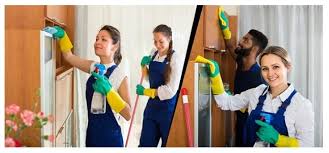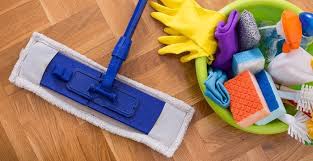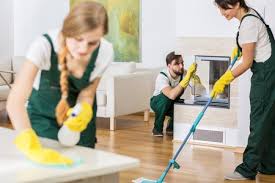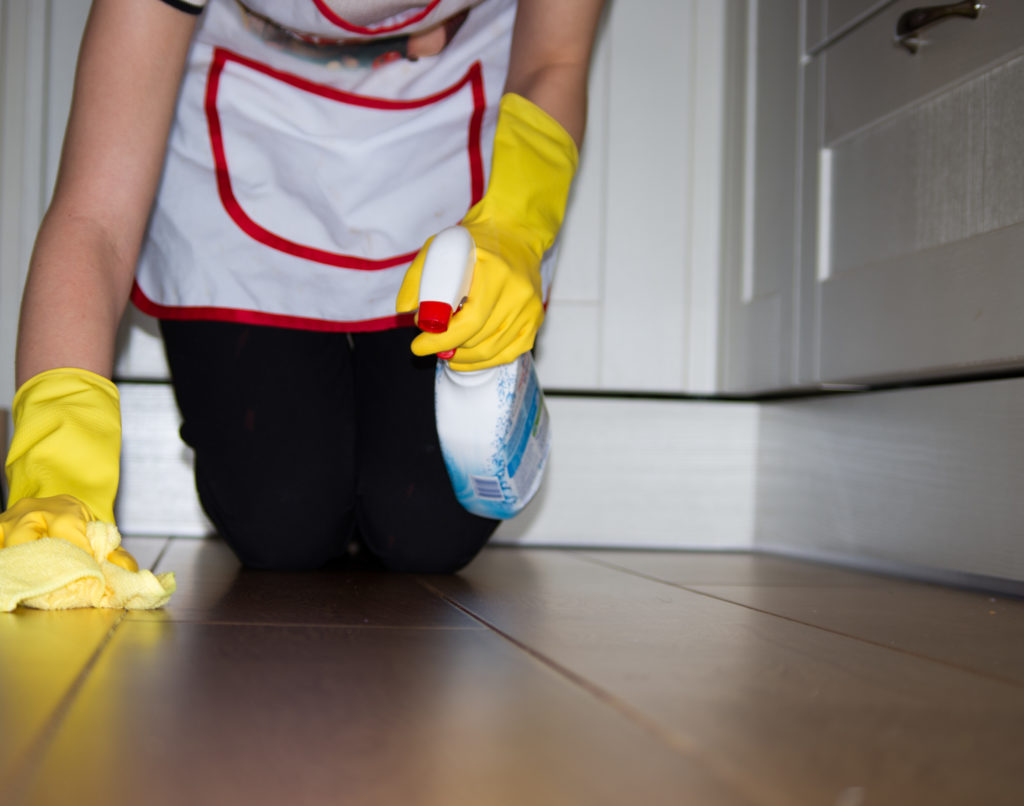How do cleaning companies ensure that they do a quality job?
So you’ve taken the leap and hired a cleaning service to clean your home. How will your new cleaning crew ensure that they’ve done a great job and that you are happy with their service?
The number one reason people drop their cleaning company or switch to a new one is due to a decrease in the quality of their house cleaning they receive over time. Customers love that first cleaning; it was spectacular! But then they feel that the quality went downhill from there. An experienced, professional cleaning company will give a lot of attention to doing a good job for you and will verify your satisfaction over and over because they don’t want to lose your business. When you ask your cleaning company about their quality control program, you should expect to hear something similar to ours.
Here are some specific steps we take:
- Train all yours cleaners to clean your home following our proven method to consistently deliver a high quality cleaning. We never assume that a new employee can clean well. Our new hires study our cleaning techniques and practice them in different scenarios, working closely with one of our certified trainers. Residential cleaning business all over the U.S. and Canada come to us to learn our Perfect Maintenance Cleaning methods so that they can improve their quality and efficiency. Our owner literally wrote the Perfect Maintenance Cleaning book that professional services use to train their cleaners.
- Do house checks. Members of our management team perform random house inspections after a home has been cleaned so that every cleaner’s work is checked periodically. We’ll provide feedback or recommend additional training, if necessary.
- Make it easy for customers to tell us how we’re doing. We encourage comments and offer three ways to reach us: text, phone call, and email. We also leave behind a quality score sheet or comment card at every cleaning. All feedback is reviewed by our Operations Manager who shares it with our cleaners directly—both the compliments and the opportunities for improvement. We believe that it’s our job—not the customers’—to give employee feedback caringly and constructively.
- Act on any complaints we receive. Any complaints we get will guide the steps we take to re-train our cleaners or to remove them from our business if re-training fails.

Hiring: What Traits to Look For
In the beginning of your business, “the right people” are most likely to be you and any business partners you start your company with. It’s harder to hand off the cleaning work to someone else when you’re starting out. We really had to do it ourselves in the beginning while we got the hang of our business and worked out our hiring process.
If you’re busy enough that you need to hire staff, here are the traits you should look for when hiring.
Previous Cleaning Experience
You can lose a lot of time and money training people who are new to cleaning and who might quit after a few months. It’s very physical, and it’s just hard for some people. Although you’ll probably need to hire some people who don’t have a lot of experience, try to look for people who do have cleaning experience and even want to make a career out of it. They already know how to do the job, they already understand what hard work it is, and they already know they like cleaning.
Independent, Self-Motivated and Hard-Working
Cleaners go out into the field on their own, so housecleaning is a job for people who are highly independent and self-motivated. You definitely need people who like to work on their own, because you are working alone most of the time. You might have a partner, but you’re not working side by side. So your staff need to be comfortable working alone and able to do their work without a supervisor standing over their shoulder. They also need to be able to work hard physically, because the job is physically demanding.
Friendliness
Although your ideal cleaners are the kind of people who are comfortable working alone, it’s still important that they’re friendly too, as quite often they will communicate with clients on your behalf. In many ways, your cleaners are the face of your company—to your clients, they are the company. It’s essential that they make a good impression.
Commitment to the Job and Loyalty to the Clients
Your staff must be able to commit to showing up every day without the other commitments in their lives getting in the way. You have to be committed to serving your clientele,” says Katie. “If you don’t show up, there’s nobody else who can step in. I had a few staff with such a high level of commitment that they would genuinely be upset if they got sick. They felt bad that their clients that day weren’t going to get their houses cleaned.

Training Tips to Get Your Cleaning Service Employees on the Right Track
Now that they’re hired, it’s likely that the majority of applicants for entry-level cleaning jobs will need training. This isn’t necessarily a disadvantage; in fact, you may prefer to handle this yourself since hiring individuals without professional cleaning experience lets you train them to clean your way.
If you think you can’t afford to spend time on training, think again–can you afford not to adequately train your employees? Do you really want them interacting with customers or cleaning homes and offices when you haven’t told them how you want things done?
These tips will help you maximize your training efforts:
- Find out how people learn best. Delivering training isn’t a one-size-fits-all proposition. People absorb and process information differently, and your training method needs to be compatible with their individual preferences. Some people can read a manual, others prefer a verbal explanation, and still others need to see a demonstration. In a group training situation, your best strategy is to use a combination of methods; when you’re working one-on-one, tailor your delivery to fit the needs of the person you’re training.
- Use simulation and role-playing to train, practice and reinforce. One of the most effective training techniques is simulation, which involves showing an employee how to do something and then allowing them to practice it in a safe, controlled environment. If the task includes interpersonal skills, let the employee role play with a co-worker to practice what they should say and do in various situations.
- Be a strong role model. Don’t expect more from your employees than you’re willing to do. You’re a good role model when you do things the way they should be done all the time. Don’t take shortcuts you don’t want your employees to take or behave in any way that you don’t want them to behave. On the other hand, don’t assume that simply doing things the right way is enough to teach others how to do things. Role modeling is not a substitute for training. It reinforces training. If you only role model but never train, employees aren’t likely to get the message.
- Look for training opportunities. Once you get beyond basic orientation and job skills training, you need to constantly be on the lookout for opportunities to enhance the skills and performance levels of your people.
- Make it real. Whenever possible, use real-life situations to train–but avoid letting customers know they’ve become a training experience for employees.
- Anticipate questions. Don’t assume that employees know what to ask. In a new situation, people often don’t understand enough to formulate questions. Anticipate questions and answer them in advance.

Give Your Employees the Power to Upgrade Customer Service
Although ensuring a thorough cleaning job is the best way to provide excellent customer service, your employees should feel confident in going above and beyond. By allowing your staff to give your clients “extras,” such as a complimentary carpet deep clean or a ten percent discount, you are increasing their ability to deliver amazing service.
Your cleaning business training should also include tactics for providing great customer service, such as:
– Taking notes on client preferences and passing those along to team members.
– Having answers to client questions.
– Returning phone calls, emails, and other correspondence promptly.
– Allowing time gaps between jobs to minimize arriving late to a task or needing to leave early to be on time elsewhere.
– Showing up to the job in uniform and with all the necessary tools and equipment (plus backups as necessary.)
How to prepare for your first professional house cleaning experience
From a couple of must-dos, to treating your house cleaner with respect; here is everything you need to know about being fully prepared for your first house cleaning service by a professional maid.
Don’t Let Anything Get in Your Cleaner’s Way
You can’t expect your cleaning professional to do a satisfactory job if they haven’t been given a fair chance to do so. In other words, it is your responsibility to ensure that there is no clutter or untidiness around the house that will hinder their cleaning process. This means picking up stuff from the floor and tidying up surfaces so that they can be cleaned efficiently.
It should be noted that some cleaning services include tasks that go beyond basic tidying up; however, for those that do not, it conveys a certain level of respect when you do your bit to make the cleaner’s job a little easier. Moreover, the help you hire should not feel like they are being taken advantage of when doing things that aren’t part of their job description become a habit.
Give Clear and Concise Instructions
A professional maid understands that their job is to clean your house; however, every home and family is unique and therefore, the requirements differ. Along with this, you may have a set of rules or boundaries that you would like the cleaner to follow such as knocking before entering a bedroom or bathroom.
Along with this, some homeowners have specific preferences where home cleaning is concerned; for example, you can request for the use of eco-friendly cleaning products or simply supply the hired professional with your choice of cleaners. This, of course, is something that should be discussed with the professional prior to their arrival. If you have any other instructions, be clear and concise when politely explaining them to the cleaner.
Put Valuables Away
Firstly, it pays to hire a maid from a reputable cleaning agency wherein employees are thoroughly vetted, as well as insured and bonded. On the other hand, from a cleaner’s perspective, they are not always comfortable working in a house where money or valuables are left lying around. This is because if you were to misplace something of value, they are likely to be the first ones to get blamed.
This is particularly true when a homeowner is hiring help for the first time, or dealing with a new maid. In other cases where clients and cleaners have formed a strong bond or close relationship over a long period of time, this doesn’t become a problem. Having said that, when hiring the services of a professional maid, it is your responsibility to make the cleaner feel comfortable on every occasion, and this includes securing valuables.

